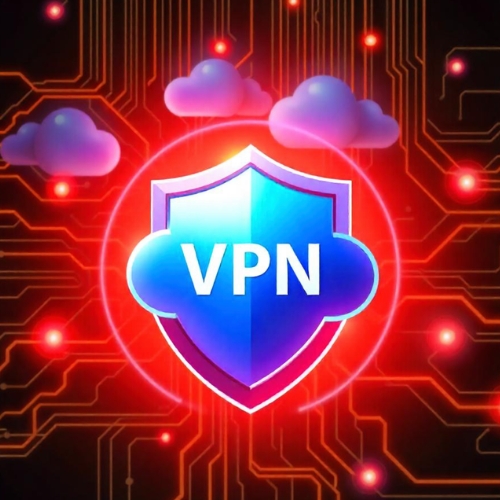Here’s Why the Answer is YES
In today’s hyper connected world, we rely on multiple devices to stay online smartphones, laptops, tablets, smart TVs, and even gaming consoles. With all these devices connected to the internet, it’s more important than ever to think about how to protect your privacy and secure your data. One of the best ways to do that is by using a VPN (Virtual Private Network). But a common question arises: do you need a VPN on all your devices?
The short answer is yes. In this blog post, we’ll explain why you should use a VPN on every device you own, how it protects you, and why skipping this step could leave you vulnerable to security risks and data breaches.
What Is a VPN and Why Should You Use It on Every Device?
A VPN encrypts your internet connection and hides your IP address, making it impossible for hackers, advertisers, or even your Internet Service Provider (ISP) to track your online activity. It provides a secure, private tunnel between your device and the internet, which is essential for protecting your data, especially when using public Wi-Fi or unsecured networks.
Many people think that only their computer or smartphone needs protection, but the truth is that every device connected to the internet is vulnerable. Without a VPN on all your devices, you’re leaving gaps in your security. Let’s break down why it’s crucial to protect each of your devices with a VPN.
Why You Need a VPN on Your Smartphone
Your smartphone is likely one of the most personal and frequently used devices. It’s packed with sensitive information, from banking apps and social media accounts to location data and personal messages. Many people also use their phones to access public Wi-Fi networks, whether at a coffee shop, airport, or hotel. Unfortunately, these networks are a hacker’s dream, as they’re often unsecured.
Without a VPN on your smartphone, here’s what could happen:
- Hackers can easily intercept your connection and steal your personal data on public Wi-Fi.
- Your ISP and other third parties can track your browsing activity, even if you’re using mobile data.
- Apps can monitor your online behavior and sell your data to advertisers.
By installing a VPN on your smartphone, you can ensure that all your online activity is encrypted, even when using unsecured networks.
Why You Need a VPN on Your Laptop and Desktop
Most people think of their laptops or desktops when considering a VPN, and for good reason. Whether you’re **working from home, streaming, or shopping online, your computer is a hub for sensitive data.
Without a VPN on your laptop or desktop, you’re exposing yourself to risks such as:
- Man in the middle attacks where hackers can intercept your data during online transactions.
- Your ISP tracking your browsing history and selling it to advertisers or other third parties.
– Access to geo-blocked content being restricted by your real location.
A VPN on your laptop or desktop will not only encrypt your connection but also allow you to bypass geo-restrictions for streaming services, ensuring you can access content from anywhere in the world.
Why You Need a VPN on Your Tablet
Tablets are a convenient hybrid between phones and computers, and they often get used for streaming, online shopping, or browsing. Since they are portable, they are frequently connected to public Wi-Fi whether you’re traveling or sitting in a café. Like your phone and laptop, your tablet contains private data that can be vulnerable without the protection of a VPN.
With a VPN on your tablet, you can:
- Encrypt your internet connection to prevent data theft on public Wi-Fi.
- Access geo-restricted content while traveling, especially for streaming services.
- Ensure your online privacy is intact, preventing apps and websites from tracking your location.
Why You Need a VPN on Your Smart TV and Streaming Devices
Smart TVs and streaming devices like Roku, Apple TV, or Amazon Fire Stick are increasingly becoming targets for cybercriminals. These devices are always connected to the internet, and many people use them to stream content from various services, often without considering the security implications.
If you’re not using a VPN on your smart TV or streaming device, here’s what could happen:
- You may be restricted from accessing content due to regional blocks. Streaming services like Netflix and Disney+ often restrict certain shows and movies based on your geographic location.
- Your ISP can throttle your bandwidth, slowing down your streaming speeds, especially if they detect high levels of streaming traffic.
A VPN will not only protect your streaming devices but also allow you to access geo-restricted content, meaning you can watch your favorite shows no matter where you are in the world.
Why You Need a VPN on Your Gaming Console
If you’re a gamer, you might not think about using a VPN on your Xbox, PlayStation, or Nintendo Switch, but it’s just as important. Online gaming comes with its own set of risks, especially if you’re involved in competitive gaming or multiplayer modes.
Here’s why a VPN is crucial for gaming:
- It helps protect you from DDoS attacks (Distributed Denial of Service), which can slow down your internet connection or take you offline entirely during gameplay.
- You can access early releases and region-specific games that might not be available in your country.
- A VPN can prevent lag and throttling by your ISP, which sometimes slows down your connection when detecting heavy gaming traffic.
By using a VPN on your gaming console, you’ll not only enhance your privacy but also improve your gaming experience with smoother, unrestricted gameplay.
Why You Need a VPN on Iot Devices
Your Internet of Things (IoT) devices, such as smart home systems, security cameras, or smart speakers, are all connected to the internet and can be potential targets for hackers. Many of these devices have weak security protocols, making them vulnerable to cyberattacks.
Without a VPN, your IoT devices could be compromised, leading to:
- Hacking of your home security system or surveillance cameras.
- Data theft from devices like smart thermostats or home assistants, which store personal information.
- Privacy breaches, as IoT devices often have microphones and cameras that can be hacked and used for spying.
A VPN will add an extra layer of security to these devices, ensuring that your smart home stays smart and secure.
Why Using a VPN Router May Be the Solution
Instead of installing a VPN on every individual device, one great solution is to install a VPN on your router. By doing so, every device that connects to the internet through your home Wi-Fi network will automatically be protected by the VPN. This ensures that all your devices, from laptops to smart TVs, are covered without having to install the VPN separately on each one.
With a VPN router:
- Every device connected to your home network is automatically secured.
- You can **save time and effort** by setting up the VPN just once.
- Your IoT devices and other smart devices, which may not support VPN apps, will still benefit from encrypted connections.
The Risks of Not Using a VPN on All Devices
If you only install a VPN on some devices but not all, you’re creating security gaps that can still be exploited. Here’s what could happen if you leave certain devices unprotected:
- Data breaches could occur through less-secure devices like IoT gadgets or smart TVs, putting your personal information at risk.
- Hackers could target your vulnerable devices on public Wi-Fi, gaining access to sensitive information.
- Geo-restrictions and bandwidth throttling could still affect your streaming or gaming experience on unprotected devices.
By installing a VPN on all your devices, or using a VPN router, you can ensure your entire digital life is secure, private, and free from regional limitations.
Conclusion: Secure Every Device with a VPN
In a world where we’re constantly connected, using a VPN on every device you own is the smart way to protect your privacy and ensure your data stays safe. Whether it’s your smartphone, laptop, tablet, or smart TV, every device can benefit from the security, privacy, and access to geo-restricted content that a VPN provides.
If you want complete protection for your online activities, install a VPN on all your devices today. It’s a simple step that can prevent data breaches, ensure privacy, and open up a world of unrestricted internet content.
Ready to secure all your devices? Click here to find the best VPN for you and start browsing safely on every device you own!
—



